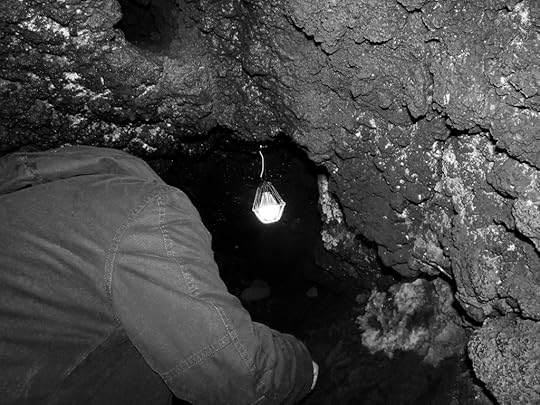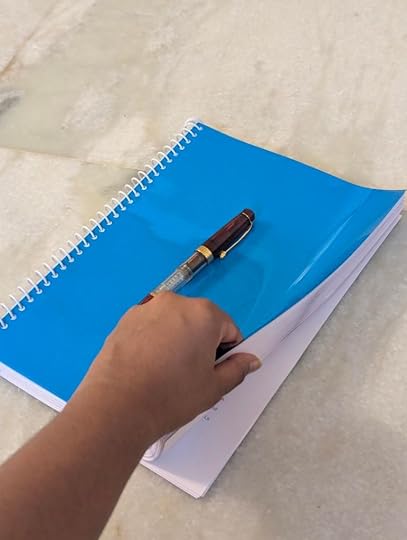How I failed to write a novel(la)
 Cave in Yamanashi, Japan | Digital camera, 2016
Cave in Yamanashi, Japan | Digital camera, 2016So, I finished drafting a new book.
The above photo of a person losing their head in a dark cave is a remarkably accurate portrayal of what the drafting process feels like for me every time.
My manuscript currently has the charming working title of ‘TB’ and is a science-fiction fantasy novel about a married couple trying to survive public humiliation. It is lighter in tone than my previous novel, but heavier on the politics.
I set out to write a novella in a fit of literary arrogance, because I assumed that the novella (any novel between 100 and 200 pages, by my definition) was an easy thing to write, something that a weary bestselling author usually “craps” out as a money grab between birthing longer and more ambitious projects, and I wanted to test out that theory (despite being far from a bestselling author or having any money to grab). And since I was spending about four hours commuting every day, I decided late last year that a novella would be a simple and refreshing thing for me to type out on my phone while travelling so I could lift myself out of a world where I was constantly squashed into the corners of sweltering trains and buses and public toilets.
Separately, here are some excellent novellas I highly recommend as a reader, in no particular order:
Exquisite Cadavers by Meena Kandasamy
My Poems Are Not For Your Ad Campaign by Anuradha Sarma Pujari
Minor Detail by Adania Shibli
Prosper’s Demon by K.J. Parker
The Love of Singular Men by Victor Heringer (trans: James Young)
Ankomst by Gøhril Gabrielson (trans: Deborah Dawkin)
Unlike these masters of their craft, however, I emerged humiliated and humbled with a blue spiral-bound tome from the local printer that contained my 52,000-word draft—well above the 40,000-word limit of a respectable novella.

In fact, between December 2024 and April 2025, I learned ten thousand times that writing a novella is in fact far more punishing than writing a novel, since most people who write (hopefully good) novellas aren’t really struggling to touch the 40,000-word mark, but are actually struggling to whittle down a mountain of words to the 40,000-word mark.
My first historical fantasy novel, Body Traitor’s History, was drafted in about four months and crossed the 90,000-word mark before I brought it back down to 83,000. By contrast, this science fiction-fantasy “novella” took me the same amount of time to write and I obliterated my own soul so I could type End after 52,000 words. Even after multiple rounds of edits, the manuscript has drastically changed but the word count remains stuck there.
You see, once the author crosses the 50,000 or 60,000-word mark in a novel, a multitude of pests such as sagging middle chapters and filler episodes and indulgent descriptions and character banter and dream sequences make their homes in the crevices of the page and are impossible to evict, but the novella is a different beast.
Every word must do the work of nine more. Two sentences of description should flesh out the scene. You describe a character’s eye colour and hurry them off to die in the climax.
And if that wasn’t pressure enough, I stubbornly opted for multiple narrators and not one, but two climaxes.
Once the draft marinates in the darkness of my closet for exactly a month, I take it up again, by which time I have forgotten most of the text. This way, I view the words with fresh, dispassionate eyes when I swoop down on them with a red ink pen, slashing away the book’s extra fat and embellishments, apart from reading aloud every word.
If you are unfortunate enough to live near me, you will hear me hoarsely exclaiming, “Lord, I wrote this?” in horror and revulsion every few minutes.
So, will this novel finally turn into a novella? Stay tuned and I hope to keep you posted.
In the meantime, you can check out my first novel, Body Traitor’s History, which is a 350-page standalone Indian history-inspired romp about family conspiracies, our health, falling empires, and what it means to take charge of your own body.
Amazon link to my book



